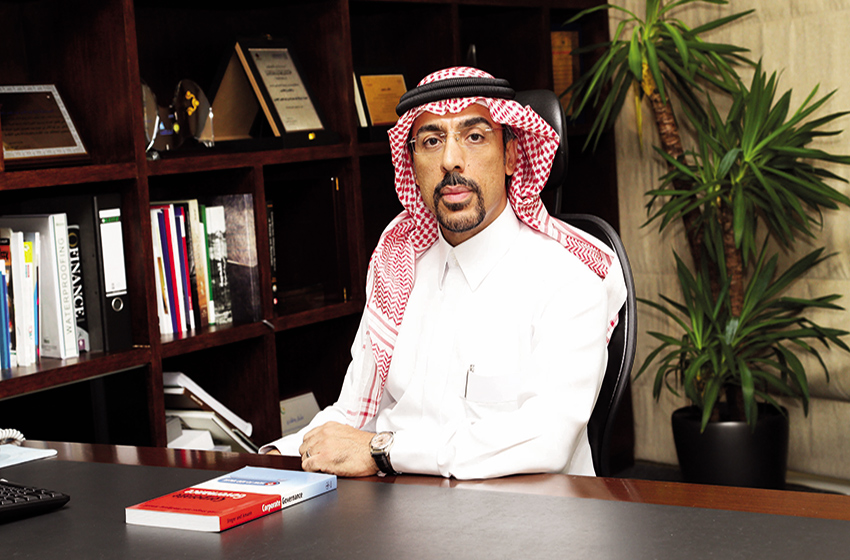The government has initiated a number of large-scale construction works in order to ease pressure on existing infrastructure

The boom of Saudi Arabia’s construction sector – its second largest industry behind hydrocarbons – has seen the rapid expansion of the country’s infrastructure over the past two decades. Today, the industry contributes approximately 8 per cent of Saudi Arabia’s total GDP, and is the largest construction market in the Middle East.
Despite the massive increase in building projects, Saudi’s rapidly expanding population continues to put pressure on existing infrastructure. As a result, the government – which accounts for 67 per cent of construction investment – has initiated a number of large-scale projects in the sector for the coming years valued at $800 billion (£523 billion).
As part of the country’s economic goals for diversification and job creation, the major emphasis of upcoming projects is to achieve more balanced development.
Together, education and healthcare remain a priority for the government, accounting for 37 per cent of construction sector spending, with a total of $85 billion set to fund more than 500 new schools and colleges and 19 new hospitals over the next few years.
Meanwhile, $43.8 billion has been allocated for transport, telecommunications, water, agriculture and other related infrastructure, with transport development in particular seen as essential to enhancing construction industry growth.
Saudi Arabia has several railway projects in the pipeline, for instance, which aim to support intra-regional trade and increase the country’s export capacity.
Alongside this, the country also began work on its long awaited first metro rail network in the capital Riyadh last year, which is set to be the world’s largest public transport system.
Other mega projects – designed to promote development across the country – are the construction of six economic cities, including the 168 kilometre, $75 billion King Abdullah Economic City in Rabigh (set for completion in 2029).
The Kingdom Tower in Jeddah, meanwhile, will be a true symbol of the strength of the Saudi construction industry when it is unveiled in 2019; becoming the world’s tallest building.
However, while such feats of engineering will undoubtedly put a jewel in the kingdom’s construction crown, the industry also has to face some significant challenges, namely, addressing the massive housing shortage.
In a bid to meet market shortfalls, the kingdom is accelerating the delivery of new homes, while other initiatives, such as promoting real estate activity on unused land, are also being deliberated.
Another challenge posed is ‘Saudisation’ – a government policy meaning a certain percentage of employees must be Saudi Arabian citizens. It is a factor that has hurt the dynamism of the construction sector, with the quota causing an unsustainable dependency.
However, with dialogue now having started with the Saudi government over the issue, stakeholders in the industry say that progress is being made on finding a solution.
“We are grateful that they eventually accommodated a dialogue, which started two years ago,” says CEO of Abdullah A.M. Al-Khodari Sons Company, Mr Fawwaz Al Khodari.
“[It] was extremely helpful as a testing ground for some of the initiatives they were willing to share with our industry.”
Although the government and its massive rate of spending in construction over the past twenty years has largely powered the kingdom’s growth, unprecedented investment from the private sector has also played a major role in driving the sector forward. Abdullah A. M. Al-Khodari Sons Company is a prime example of a domestic business that has contributed to this dynamic.
Established in 1966 by Mr Al Khodari’s father, the company began its focus mainly in developing the country’s road network, taking advantage of the 70s oil boom. During the 80s, it then diversified into city cleaning and maintenance.
“While construction is a cyclical business, city cleaning operations never stop and they provide a sustained business as well as revenue opportunity,” explains Mr Al Khodari. “By the late 1980s we were one of the largest city cleaning contractors in the Middle East.
At that point in time it even became the back-bone of the company when oil price plummeted and construction dramatically slowed down. We continue to employ this business model as a sustainable cash-flow strategy.”
During the past 10 years, the company has been responsible for numerous vertical construction projects, including developments such as universities, training centres, and other public buildings.
To further transparency and efficiency, the company went public just under a decade ago, which has fortified Abdullah A. M. Al-Khodari Sons Company and also added to its recent growth.
As the diversification of Saudi Arabia’s economy continues to gather pace – with evolution in the country’s different industries leading to the creation of more offices, shopping malls, hotels and other tourist and service-oriented facilities, private sector companies like Abdullah A. M. Al-Khodari Sons Company – which itself is targeting the many new opportunities for the construction sector in renewable energies – will look to continue experiencing healthy profits, and in turn, increase their contribution to the desert nation’s development.
0 COMMENTS